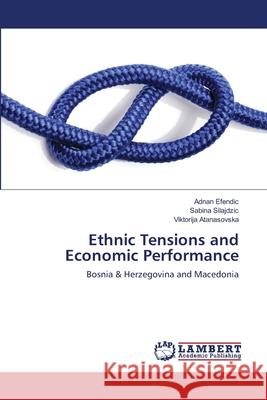Ethnic Tensions and Economic Performance » książka
Ethnic Tensions and Economic Performance
ISBN-13: 9783659488924 / Angielski / Miękka / 2014 / 188 str.
We empirically analyze the relationship between ethnic tensions, institutional and economic performance in Bosnia and Herzegovina (BiH), including a qualitative analysis of this issue for BiH and Macedonia. The research is conducted by a mixed methods approach, in which questionnaire surveys of the household and business sectors in BiH are supplemented by semi-structured interviews. We find that the most important factors affecting both individual economic performance and individual ethnic tolerance in BiH are employment status, education and age; they both singly and in combination move individuals in BiH towards greater probability of being both prosperous and tolerant. The qualitative analysis based on interviews conducted in BiH and Macedonia supports similar conclusions by identifying that the most important factors affecting ethnic tensions include: employment, education, and neighborhood. Finally, the empirical findings from the business survey in BiH suggest that ethnic tensions inherent in company's culture, formal institutions and firm's environment adversely affect the export performance of firms located in these communities.
We empirically analyze the relationship between ethnic tensions, institutional and economic performance in Bosnia and Herzegovina (BiH), including a qualitative analysis of this issue for BiH and Macedonia. The research is conducted by a mixed methods approach, in which questionnaire surveys of the household and business sectors in BiH are supplemented by semi-structured interviews. We find that the most important factors affecting both individual economic performance and individual ethnic tolerance in BiH are employment status, education and age; they both singly and in combination move individuals in BiH towards greater probability of being both prosperous and tolerant. The qualitative analysis based on interviews conducted in BiH and Macedonia supports similar conclusions by identifying that the most important factors affecting ethnic tensions include: employment, education, and neighborhood. Finally, the empirical findings from the business survey in BiH suggest that ethnic tensions inherent in companys culture, formal institutions and firms environment adversely affect the export performance of firms located in these communities.











